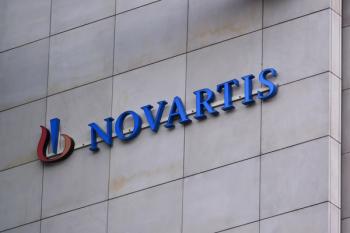
Promoting Sustainable Access to Quality Health Care
Elizabeth (EJ) Ashbourne, Executive Director of the Partnership for Quality Medical Donations (PQMD), discusses the role of the organization in advancing global health and highlights the benefits offered to members of the pharma industry.
Elizabeth (EJ) Ashbourne, Executive Director of the Partnership for Quality Medical Donations (PQMD), has an extensive background in public health, including 17 years in several senior positions at the World Bank. Among her achievements there, she contributed to research on a common metric for donor agencies, development partners and countries to measure their investment in health information. She also led the engagement of the private sector in the fight against HIV/AIDS as the focal point for private sector partnerships with the World Bank’s Africa Region HIV/AIDS programs.
EJ talks to Pharm Exec about the role of the organization in advancing global health and highlights the benefits offered to members of the pharma industry.
Pharm Exec: What is the Partnership for Quality Medical Donations and how did it get its start?
EJ Ashbourne: The organization goes back to 1998, when an informal alliance of several non-governmental organizations (NGOs), pharmaceutical companies, and medical device firms joined together to develop guidance regarding medical donations. There was a need to ensure that those who were donating, placing, and receiving the goods and services, along with governmental organizations, were communicating effectively, cooperating efficiently, and meeting the needs and requirements of all involved. In 1999, this informal group incorporated as the Partnership for Quality Medical Donations, a 501(c)(3) nonprofit organization.
More than twenty years later, PQMD is actively involved in bringing both the public and private sectors together to coordinate and respond to the world’s largest health challenges. Our members and partners are able to mobilize immediately when disaster strikes. Within 72 hours of any crisis, the members come together and exchange information about who’s responding and providing what products, and where they are working. In this manner, members from industry, NGOs and the public sector have the opportunity to determine the appropriate response. This all works so effectively because PQMD represents a well-established and trusted network of partners that know the rules, global logistics and how to bring the best quality resources to communities that have urgent health needs.
PQMD recently hosted a Global Health Policy Forum that encompassed a broad range of topics beyond medical donations that impact the pharmaceutical industry. Can you talk about some of the other areas in which PQMD is active?
That’s correct. PQMD’s vision is a world in which there’s universal access to health and well-being. As you can see, this goes well beyond just product donations. Donations are not meant to be a long-term solution in any scenario, but rather a valuable and critical response to an urgent situation. PQMD members are committed to and invested in providing long-term sustainable support to the countries and communities in which they work.
In April, we were excited to convene an extraordinary array of international speakers at our 5th annual Global Health Policy Forum. We covered a broad range of topics reflecting how donations have evolved and expanded from just getting products together and putting them on a plane, to a much broader strategy of humanitarian support. While disasters or crisis situations serve as the catalyst for our work, we are also thinking more holistically in terms of sustainable inputs and development, and resilience. Instead of one-off donations, our member companies increasingly want to work in partnership with low- and middle-income countries where they can commit to supporting strong health systems that provide well-being for their populations in a sustainable manner. If communities are healthy and actively engaged in strengthening their economies, this will contribute to creating a stable and resilient society with adequate access to quality healthcare. This, in turn, enables the population to have less dependency on donations to address routine health needs as well as any urgent needs that come up as a result of a disaster or unexpected crisis.
A central theme of the Forum was environment, social and governance (ESG) and the critical integration and intersection of corporate responsibility, sustainability practices and responsibilities of global healthcare stakeholders. We hosted sessions with expert panelists delving into topics such as key risk and resiliency factors that impact the long-term sustainability of healthcare delivery and health system strengthening. We discussed the opportunities of new technologies that can be deployed in the more than 180 countries in which PQMD members work.We explored access and equity challenges, and the implications and possibilities that COVID created in terms of current and future vaccines and therapeutics for NTDs and NCDs. The amount of experience, contributions and resources in these organizations and pharmaceutical companies is extraordinary, and as such, we were able to host robust conversations about strategies to achieve increased private sector investment and greater public accountability.
ESG has become an important topic in the pharma industry. Tell us your perspective and more about how this intersects with PQMD’s remit.
Let me give you a bit of historical context. Corporate social responsibility and philanthropy are often the home of donation programs. Traditionally, there has always been a firewall between philanthropy and the business side of companies, as a matter of policy. ESG is a new and dynamic bridge that has been created between business interests and philanthropic concerns and is really driven by public demand for a greater demonstration of community, national and global commitments to making the world a better place.
Let’s rewind to 2017 when we had more than a dozen massive, natural disasters such as hurricanes and floods that happened around the world. For many companies — and not just those in the pharmaceutical industry, there was a significant impact on employees of companies in affected areas, and the challenge of looking after their own colleagues simultaneous with trying to maintain the outreach and investments in all the programs that these companies have traditionally done for at-risk communities around the world. Senior management looked to what donations might be available and directed toward not only their traditional beneficiaries, but their staff as well. There seemed to be a hard look at what opportunities could be offered through their corporate social responsibility strategies. What kind of resources are we providing? What kind of priority are we giving to our own employees and communities? This groundswell of interest translated to and really formalized the demand, or at least contributed to a push, to consider better integrating corporate social responsibility with business planning.
How has the pandemic impacted the role of PQMD?
As soon as COVID-19 appeared on our radar, we of course brought our members together and responded the way we do to any disaster. Our members started to gather personal protective equipment (PPE) and the supplies that the world so desperately needed. The network was highly engaged; members were talking with their partners, talking to the manufacturers and allocating funds. They were either purchasing product or getting it donated and directing where it was needed most. And then, COVID was in our own backyards, so we saw quick and agile pivots to not only supplying global requests but also working locally with partners, local organizations, hospitals, and health clinics.
Of course, COVID didn’t mean that other disasters or crisis situations weren’t also occurring in the world. It was so important to have solid and established communication channels that would optimize what was needed to address any other disaster and ongoing humanitarian support that was also happening at the time. There was a lot of sharing of shipments and cargo space, medical products and medical teams.
We were uniquely ready, because our members, both NGO and corporate, have worked together for over 20 years. We were able to respond quickly to whatever the challenge was in front of us because we already had the relationships with governments, health systems, contributors and implementers.It is indisputable that our members were making a big difference during this unprecedented and challenging time.
How can pharmaceutical companies get involved with PQMD?
They can get involved in several different ways and I encourage your readers to come and explore the extensive resources offered by PQMD. Corporates and NGOs often come to the PQMD community when they are trying to develop a donation program and seek advice on how to structure and manage it. They come to access the multisector network in order to increase their opportunities and impact when working in humanitarian crisis, in disaster, with health system strengthening and when they want to effectively reach around the world to achieve universal access to quality healthcare. The application to join can be found on our website,
We have an online Community of Practice, which is accessible at
Members can also access our Measuring for Success toolkit on the website. The toolkit includes metrics and monitoring processes as well as best practices that PQMD has crafted in partnership with companies and NGOs that can help organizations that are working in donations and beyond that. The tools help organizations measure the true impact of their work. And impact doesn’t just mean the number of people reached. It doesn’t mean number of wells dug or the number of pills that were supplied. It means, are people in better health? Are they able to be involved in the economy of their countries? Are they able to feed their families? Are they drinking clean water and, subsequently, achieving better health and well-being?
We also have our annual Global Health Policy Forum which I described. Every year we pick the major policy issues in the global health environment that we really feel need some discussion among a cross-section of partners, including the public sector, the private sector, and NGOs.We did a deep dive into ESG and also explored the new normal our world is facing, and what the road to resiliency looks like. Participating in those forums is a great way to get to know the people at PQMD, and the policymakers we engage with.
While we offer an amazing number of resources, whenever I ask our members what they believe to be the most important benefit of their PQMD membership, I invariably get the same answer. Our members say that PQMD is a trusted network of partners with whom they are able to explore and help solve critical global health issues.
Newsletter
Lead with insight with the Pharmaceutical Executive newsletter, featuring strategic analysis, leadership trends, and market intelligence for biopharma decision-makers.




